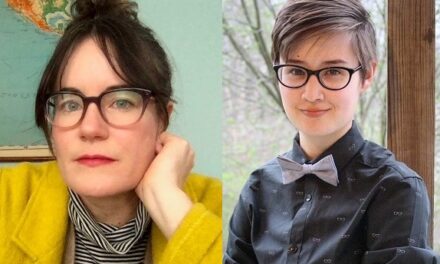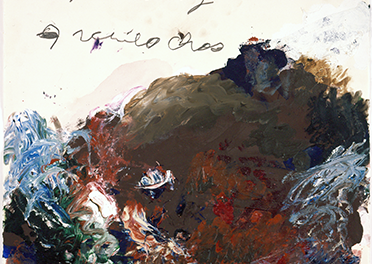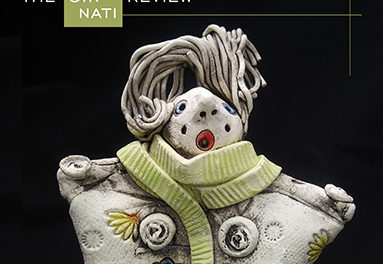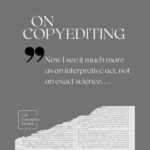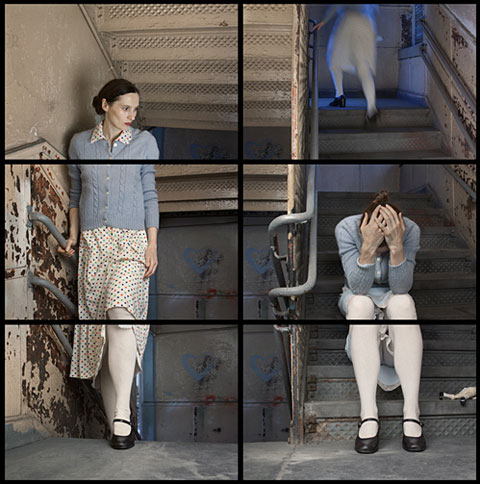 Team Alcalá -Kirby strikes again with this rematch Pas de Deux interview in which David Kirby spars with Rosa Alcalá, administering his questionnaire regarding—appropriately—her poem “Questionnaire” (10.2). Stay tuned to read the incomparable Alcalá’s ruminations on the care-taking of an elderly parent, domestic doppelgängers, and the philosophy of the Q&A.
Team Alcalá -Kirby strikes again with this rematch Pas de Deux interview in which David Kirby spars with Rosa Alcalá, administering his questionnaire regarding—appropriately—her poem “Questionnaire” (10.2). Stay tuned to read the incomparable Alcalá’s ruminations on the care-taking of an elderly parent, domestic doppelgängers, and the philosophy of the Q&A.
David Kirby: I’m a sucker for questionnaires—I always answer phone surveys as dinner cools in the other room—so naturally I love your beautiful, provocative poem. You seem to be questioning just one person in the first few stanzas, but then the questions start becoming more cosmic. Can you talk about that change?
Rosa Alcalá: The speaker is watching someone else take on the role of daughter, reaching the realization that her “avatar,” the nurse’s aide who performs the job of taking care of her mother with much more care and sensitivity, is less able, for socio-economic reasons, to refuse that role. The realization is that the caretaker, in temperament and class station, is closer to the mother than the daughter. In short, the speaker indirectly asks the mother: Who is this woman doing what I should be doing? Which is really the question she’s asking herself. She’s anguished by the presence of her twin, but also by her own absence. The doubling effect is there to suggest that the daughter and the caretaker are not distinct, although there are important differences. Each could have easily taken the place of the other had life’s circumstances been slightly different (or maybe this is just the romantic version she tells herself). The speaker, with her “questionable” agency and power, gets to administer the “scripts,” in the sense of both roles and prescriptions, that keep her and her mother strangers.
DK: As we all know, a great thing to do in a poem is to set up a pattern and then disrupt it just when the reader is starting to get comfortable. When and how did you decide you wanted to answer your own questions? Also, you answer just three questions, not all; how’s that work? For me, one quick test of a poem’s quality is asking whether or not it can be taught, that is, will the poem generate a fruitful conversation among people who know about and love poetry? Now that’s the case here, but all poems (and conversations) must come to an end, and we all know that endings can be tricky. Your question calls for a yes or no answer, but are there other options? Or did you just want to throw out a rhetorical question and leave the reader saying, “Hmm . . .”?
RA: Rosmarie Waldrop, in an essay on translation, quotes Hans-George Gadamer who says that of every statement you can ask, “Why do you say that?” I like that here each question propels the speaker, with mounting insistence, to keep asking until the final question is really the terrifying answer. In fact, all the questions for me are really answers, as they reveal the speaker’s sense of her own identity and estrangement (who, who, who, like an owl on a limb, alone, at midnight). So, following Gadamer, of every question we can ask, “Who is asking and why?” But the final question is certainly not rhetorical. I think it’s the question that implicates the reader in this situation (she must be to blame), but even that realization leads to more questions: Did she create this situation? Or was the situation created and she perpetuates it? This sense of perpetuation, of inevitability, is present in the anaphoric rhythm of the poem.


